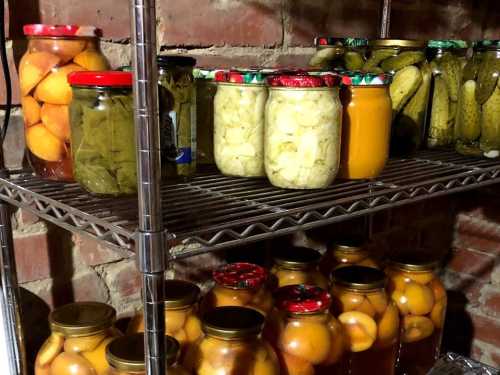
Naturally, if we compare the benefits of pickled and fresh vegetables and fruits, then fresh ones remain in priority. They are usually the richest in vitamins, minerals and other beneficial properties. However, sometimes it is difficult to preserve fruits and vegetables grown on your own plot in their original fresh form. Housewives have to resort to such storage methods as freezing, drying, and, of course, canning and pickling.
Unlike berries and fruits, the natural acidity of vegetables, which inhibits the growth of pathogenic microorganisms during storage, is almost zero. Only some – tomatoes, sorrel and rhubarb – can be preserved in their natural form at a sterilization temperature not higher than 100 °C. And for safe preservation of other vegetables, it is necessary to resort to either sterilization in autoclaves at 110-120 °C, or to the addition of acetic acid during sterilization.
Thus, foods pickled with vinegar are contraindicated for people with high acidity of gastric juice, suffering from gastritis, and even more so from gastric and duodenal ulcers.
Pickled and pickled foods with salt are contraindicated for people suffering from arterial hypertension, urolithiasis, and chronic kidney diseases.
In turn, various vegetable salads prepared with a large amount of oil are contraindicated for people with diseases of the pancreas and gallbladder.
Various jams and jellies made with sugar are contraindicated for people with diabetes and obesity.
Everyone knows that most vitamins are destroyed during heat treatment – vitamin C is especially “tender”: it breaks down in the first minute of cooking. Other vitamins (A, E, group B) are also partially lost. But even nutritionists admit that there is still a certain amount of benefit in canned food. Minerals, for example, as important for humans as magnesium, potassium and calcium, are preserved almost completely in canned vegetables. There is also such a useful substance, the specific weight of which in the product increases during heat treatment and pasteurization – this is lycopene. The main function of this substance in the human body is antioxidant. It is thanks to the reduction of oxidative stress that the development of atherosclerosis is slowed down, and DNA protection is also provided, which in turn prevents the development of tumors. Therefore, tomatoes rich in lycopene are more useful, it turns out that being heat treated – and therefore rolled up in jars – they are a rather valuable product. Cabbage cut and stored in a cool place will lose valuable vitamins every day – unlike cabbage cut and fermented immediately on the day of harvest. Sauerkraut is a record holder in terms of vitamin C and flavonoids. However, it should also be noted here: due to the high salt content, this product is contraindicated for the categories of people listed above.
Thus, following all the rules for preparing marinades and pickles, using them in small quantities, they will diversify the table in the winter season, and also, like any tasty product, they will contribute to the release of our hormones of joy – endorphins, which are so lacking in conditions of a shortage of sunlight and warmth in winter.
Note
The content of this article is supported by numerous scientific studies. Studies from Cornell University and other scientific institutions have shown that heat treatment of tomatoes significantly increases the level of lipokine, a natural antioxidant PubMed.
Scientists at Ohio State University and other researchers have confirmed that lipokine remains relatively stable during typical food processing procedures ScienceDirect, Taylor & Francis Online.
Studies on sauerkraut published in ScienceDirect demonstrate the preservation and even increase of vitamin C content when properly fermented.
Several studies, including work in the journal Scientific Reports, have confirmed a 30-50% reduction in vitamin C content during fermentation, but have also shown the preservation of minerals.
Meta-analyses and systematic reviews also support contraindications for the consumption of pickled and fermented foods by individuals with certain medical conditions PubMed Central.





